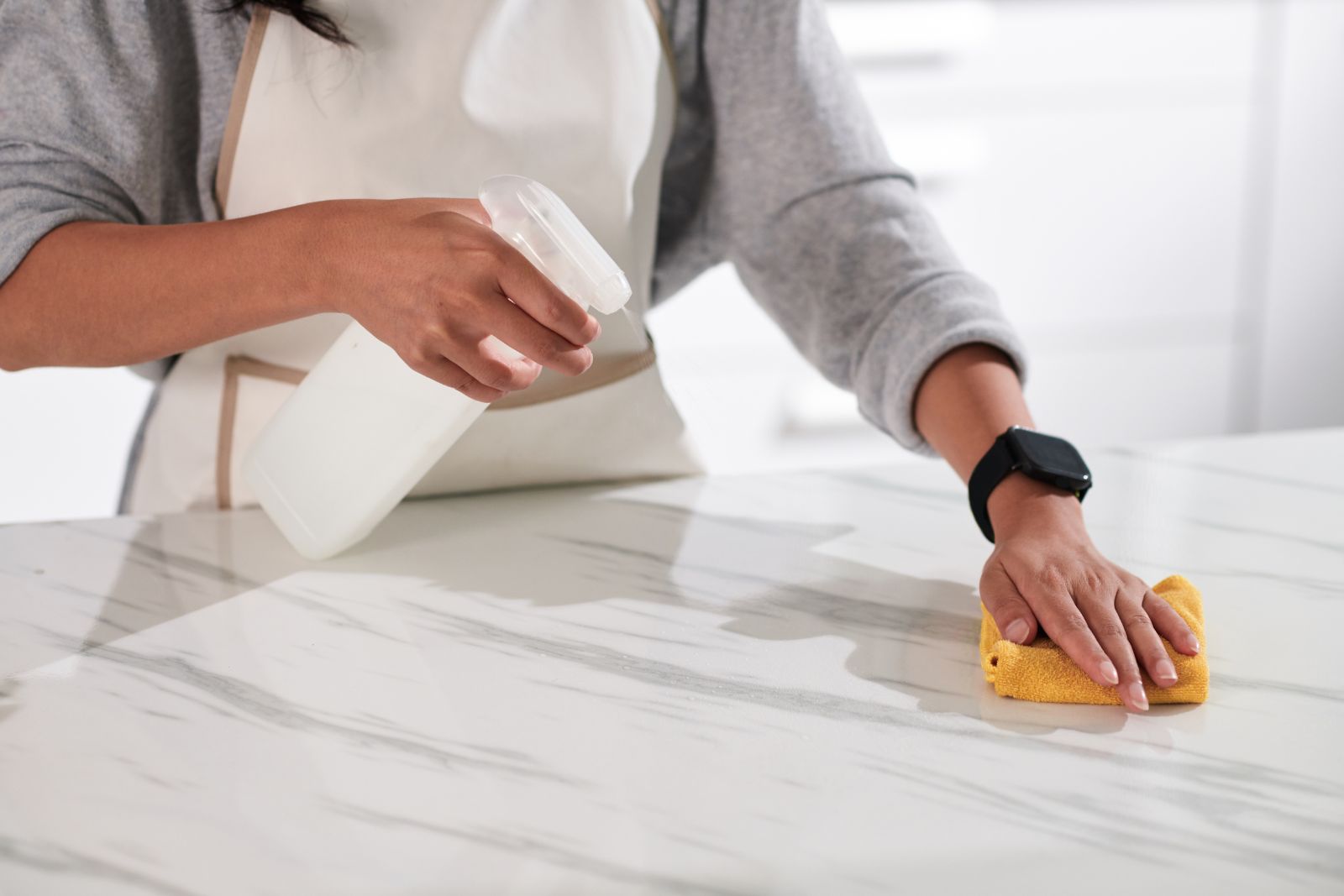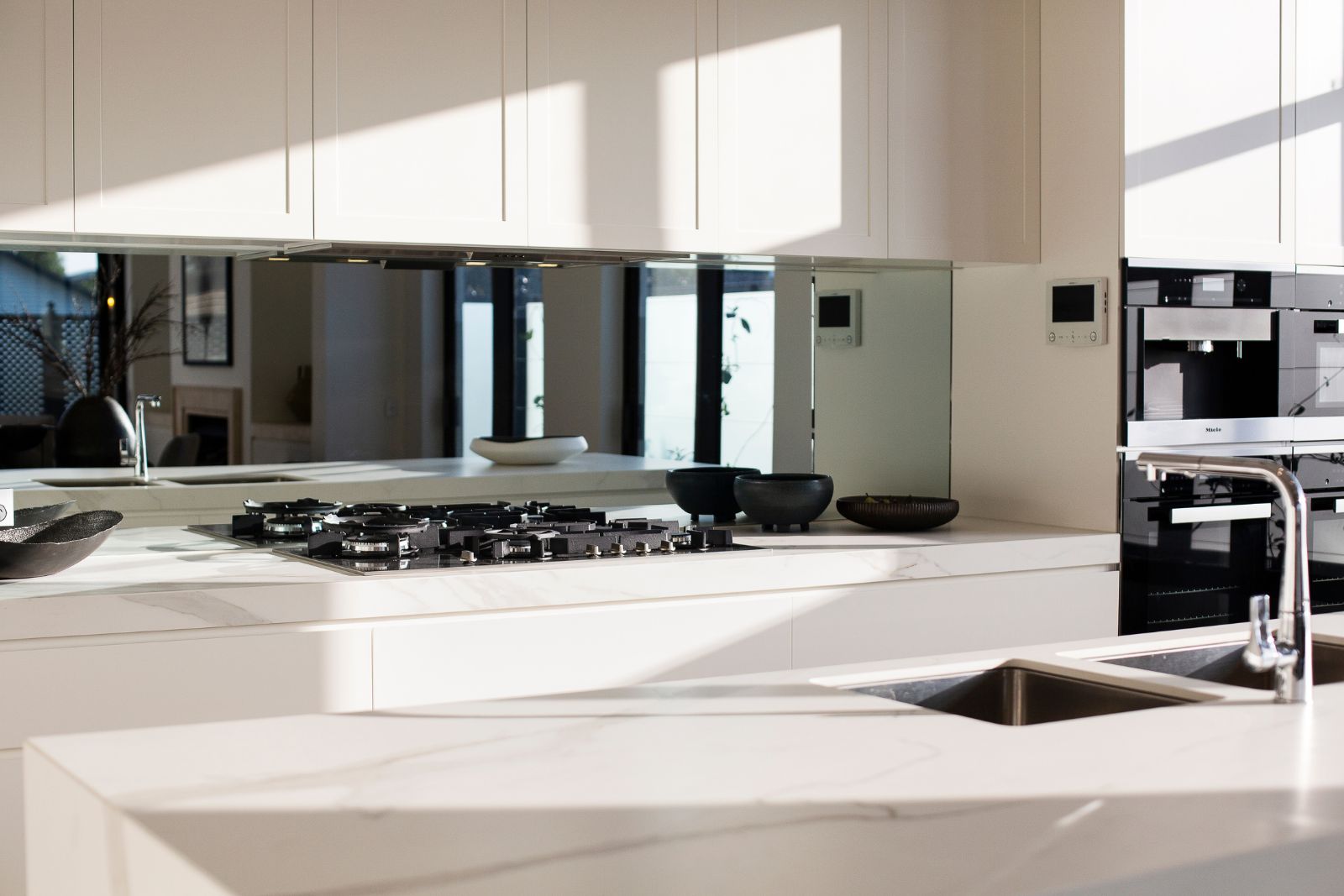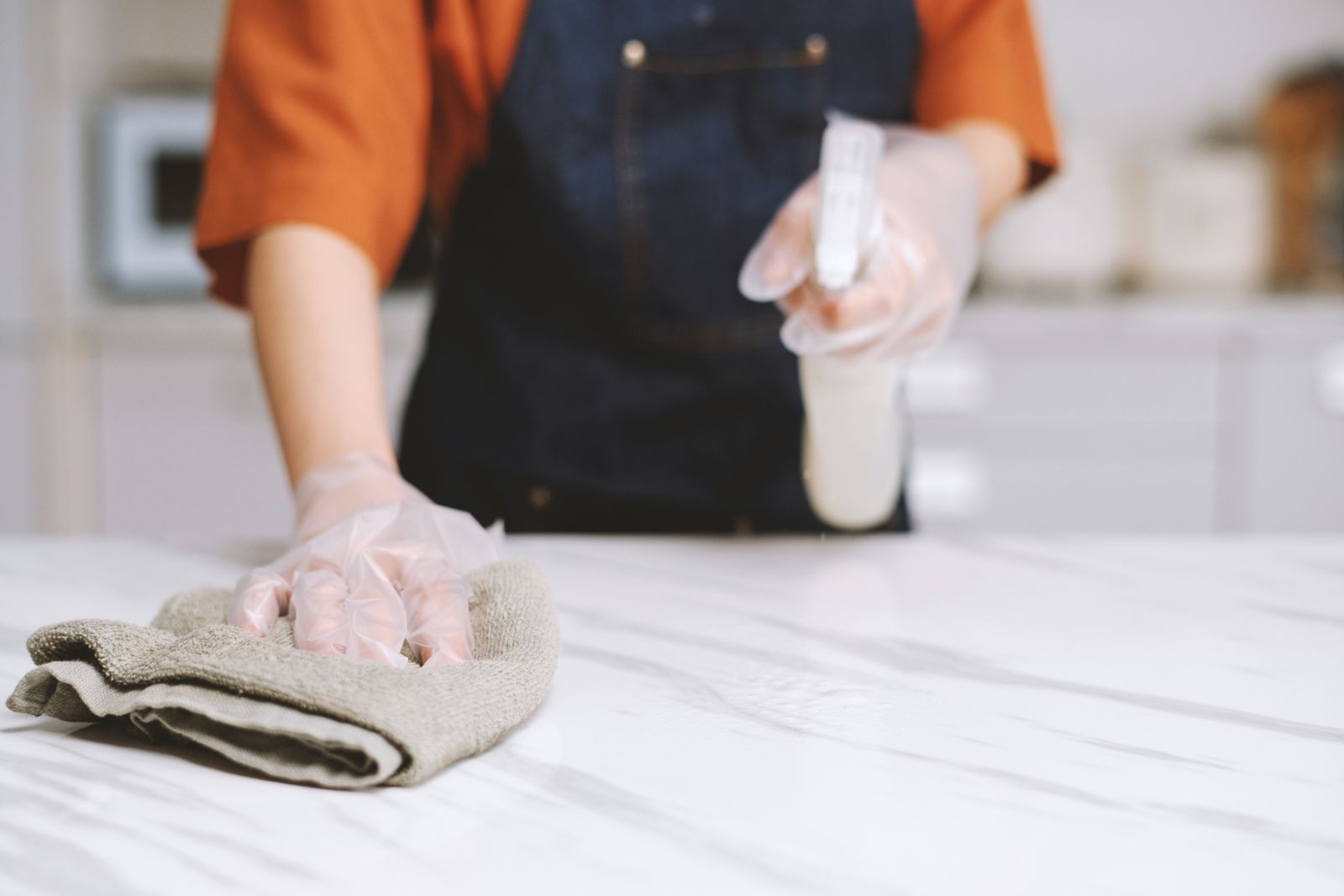Nothing can make your kitchen look expensive and luxurious quite like marble worktops. Marble, with its sophisticated appearance, truly brightens any space while increasing its value. Since investing in marble worktops is a great idea, you should try to take proper care of your worktops, so that they remain shiny and new for decades to come. In this guide, we’ll teach you everything about cleaning marble worktops, so that your kitchen can always look extra polished and ready for guests!
The secret to keeping your marble worktops clean and elegant is not just in cleaning them regularly, but also in sporadic maintenance habits such as sealing the surface. If you’re unfamiliar with best practices for cleaning marble worktops, as well as maintenance, keep reading our detailed guide.
Cleaning Marble Worktops Daily

A good rule of thumb is to clean marble worktops as soon as they get dirty. Marble worktops are porous, meaning that if left unattended, the dirt and bacteria can penetrate the surface over time. If neglected, this might potentially result in permanent staining.
The good news is, cleaning marble worktops is not at all hard. If you spill your coffee in a hurry, you still have enough time to simply wet a washcloth with water and wipe the stain. This habit of cleaning-as-you-go will save you a lot of potential trouble in the future.
As mentioned earlier, prevention is key to keeping marble looking its best. That’s why you should also be careful while handling hot pots and pans, and use coasters to protect your marble worktops from prolonged heat exposure.
How To Clean Stubborn Stains on Marble?
For stubborn stains, water and washcloth might not be enough. Still, this is not the time to use harsh chemicals such as bleach, unless you want to permanently damage your beautiful worktops.
Luckily, there is a natural ingredient already in your kitchen that you can use – baking soda. Simply sprinkle a bit of baking soda on your stain, use a damp washcloth to gently rub the baking soda on your stain, and rinse with water. Keep in mind not to leave baking soda to sit on your stain but to rinse it right after scrubbing, and of course, dry the entire area with a dry cloth to prevent water stains!
Advice on Sealing Marble

For marble, daily maintenance is not enough. And since marble worktops are an investment, it is smart to take several steps to ensure their longevity. One of these steps includes using a marble sealer. Sealer is a product used to ensure that dirt does not penetrate your stone’s surface.
The general rule is to seal marble worktops at installation, and afterwards, every six months on average. This, of course, depends on whether your marble worktops have a honed or polished finish. Honed marble worktops are more resistant to scratches due to their rough surface, but that means that dirt and bacteria are more likely to enter the pores. Therefore, some honed marble worktops should be sealed as often as every three months. Polished marble, on the other hand, is more sensitive to scratching but it requires less frequent sealing due to the polished finish. Of course, there are other factors at hand, such as your kitchen’s daily wear and tear.
It can be confusing to determine whether your worktops need resealing. Luckily, there are some ways you can find out!
How To Check If Your Marble Worktops Need To Be Resealed
If you’re unsure about whether it’s time to reseal your worktops, you can try a trick called the oil method. Simply choose a spot on your marble worktop (preferably the one that is not very visible), and put a drop of mineral oil. Wait for 30 minutes, and if there’s staining, that means it’s time for marble resealing! If you’re stressed about staining from the oil method, don’t worry, since the surface of the marble is not sealed, the oil will evaporate from the pores.
You can also use a similar method with water. Simply leave a drop of water for five minutes, and check whether the stone absorbed the water. If it did, then you’ll need to reseal your worktops.
Frequently Asked Questions

Can You Clean Marble With Vinegar?
While vinegar is a commonly used natural cleaner in many households, you should keep it far away from your marble worktops. Vinegar is acidic, and acidic liquids can be damaging to stone worktops, since they damage calcium carbonate in marble. This can cause etching, sealer damage, and dulling of the finish.
Can You Clean Marble With Bleach?
Bleach is highly abrasive and damaging to marble worktops, and it is not recommended to use it for cleaning marble worktops, or other natural stone worktops. Not only does it cause etching and breaking of the sealer, it can cause significant discoloration, forever damaging the elegant veiny look of your marble worktops.
Is Marble Cleaner Safe?
Since they are specifically designed to tackle marble concerns, marble cleaners are usually safe to use on your worktops. Keep in mind to read the label carefully – look for cleaners that are pH-neutral and non-abrasive. And, just to be safe, test the cleaner in a small area while carefully following the instructions on the label.
Can Marble Countertops Stain?
Because of marble’s porous surface, dirt and bacteria can enter the pores more easily than with other non-porous stone materials, such as quartz. If you don’t take regular care of your marble worktops, stains can become permanent.
To Conclude
Don’t get intimidated by the rules of marble maintenance, because they are actually not that hard. If you are interested in discovering more about marble worktops or considering other stone materials, contact us to get an opinion from an expert!

